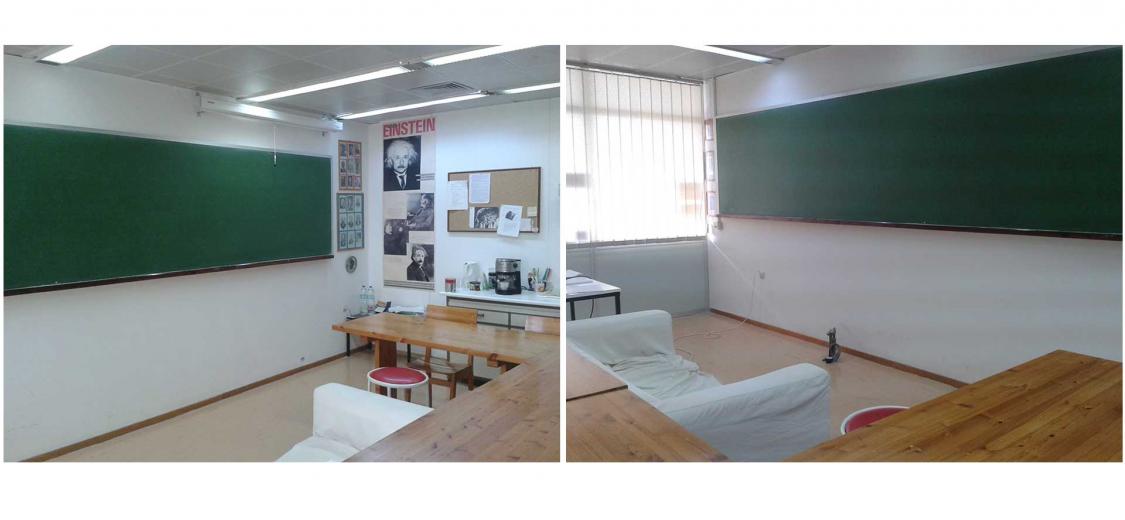PERSONNEL
| Panayiotis Vafeas (Associate Professor) |
+30 2610 996872 +30 2610 969581 |
vafeas@chemeng.upatras.gr |
| George Dassios (Professor Emeritus) |
+30 2610 969580 +30 2610 969581 |
gdassios@chemeng.upatras.gr |
| Undergraduate Diploma Students | +30 2610 969581 | |
| Postgraduate Students | +30 2610 969581 | |
| Candidate Doctors | +30 2610 969581 | |
| Postdoctoral Researchers | +30 2610 969581 | |
| Laboratory Webpage: | (under construction) | |
DESCRIPTION
The Laboratory of Applied Mathematics belongs to the Section of Process & Environmental Engineering of the Department of Chemical Engineering of the University of Patras. The purpose of the laboratory and its scientific group is to promote teaching and research to the development and the analysis of mathematical methods relative to the main scientific fields of mathematical physics. The motivation rises from the demand for the introduction of realistic models for the mathematical study of phenomena fully connected to the modern science and technology. The main scientific activation areas of the laboratory and the basic research axis, that is accomplished by the lab personnel, contain the following:
- Partial differential equations with applications to physical areas of high interest and analytical methods of their solutions.
- Ellipsoidal systems with study of the geometry and applications to physics.
- Radiation, wave propagation and scattering in acoustics, electromagnetism, elasticity and thermoelasticity.
- Inverse scattering problems in the corresponding aforementioned physical areas with the creation of complicated inversion algorithms.
- Methods of medical diagnosis relative to the brain activity with applications to magnetoencephalography and electroencephalography.
- Fluid dynamics, creeping hydrodynamics and electrically or non–electrically conductive magnetic fluids with applications to the magnetohydrodynamics and ferrohydrodynamics.
Simultaneously with the study of the problems within the particular research areas, but also with the development of new theories, from the research group of the laboratory, there are also have been developed collaborations with scientists from Greece and from abroad on analytical, hybrid and numerical methods for the treatment of the particular physical applications.
BASIC EQUIPMENT
The Laboratory of Applied Mathematics constitutes of a teaching and research laboratory in which seminars of applied mathematics are carried out and research on the scientific subjects of the description is accomplished. Consequently, its basic research equipment and the services that probably are provided or could be provided to other persons, consists of variety of books of mathematics and physics in theoretical and applied level, as well, computational units for the numerical analysis of the results or the creation of powerful algorithms for the solution of complicated problems and all the necessary material, which is needed for the transaction of teaching and research in the wide area of applied mathematics.
PROJECTS–RESULTS
The Laboratory of Applied Mathematics promotes the teaching and the research in many physical areas of applied mathematics.
The teaching concerns intensive biannual research seminars relative to the activities of the laboratory and postgraduate courses of the Department of Chemical Engineering and the University of Patras, as well.
The research results to the presentation of papers to international scientific conferences and publication of articles to valid international scientific journals with referees. In addition, it aims to the treatment of modern and important problems in science and technology through national and international programs and includes several works, others concluded and others under progress, which from 2013 until today are the following:
Diploma Projects
- Sofia Pappa 2013 (Mathematical Analysis of Electroencephalography and Magnetoencephalography Problems).
- Dafni Giannari 2017 (Effect of the Geometry of the Brain to the Magnetoencephalic Measurements).
- Efthalia Preka 2018 (Analysis of Dependence of Electroencephalic Recordings from the Geometry of the Brain Tissue).
- Georgios Papadimitriou 2019 (Effect of Head Shape Variations to Electroencephalography in Spherical Geometry).
Postgraduate Master of Sciences
–
Doctorate Thesis
- Vasiliki–Christina Panagiotopoulou 2014 (Analysis of the Stability during the Growth of Ellipsoidal Cell Tumours).
- Konstantia Satrazemi 2014 (Electromagnetic Activity of the Brain and its Relation to Learning Processes).
- Georgios Fragoyiannis 2019 (Boundary Value Problems in Ellipsoidal Geometry).
Research Programs
- Program K. Karatheodoris 2010–2013 (Mathematical and Computational Development of 3–D Models for the Magnetohydrodynamic Flow of Magnetic Fluids).
- Program Aristeia 2012–2015 (Source Localization and Stability Analysis in Electro–Magneto–Encephalography).
At the laboratory, from 2000 until today, there have been accomplished important distinctions, some of them re- capitulated in the following:
- Writing of research book 2000 (Low Frequency Scattering / George Dassios and Ralph Kleinman) and publication Oxford University Press.
- Commendation of Athens Academy award 2004 of scientific publication (Magnetoencephalogrphy in Ellipsoidal Geometry / George Dassios and Foteini Kariotou) at the Journal of Mathematical Physics.
- Commendation of the Marie Curie Chair of Excellence 2005–2008 to George Dassios for the Department of Applied Mathematics and Theoretical Physics, Cambridge (relative video at the following link http://excellence minedu.gov.gr/listing/114-electroencephalography)
- Writing of research book 2012 (Ellipsoidal Harmonics. Theory and Applications / George Dassios) and publication Cambridge University Press.

